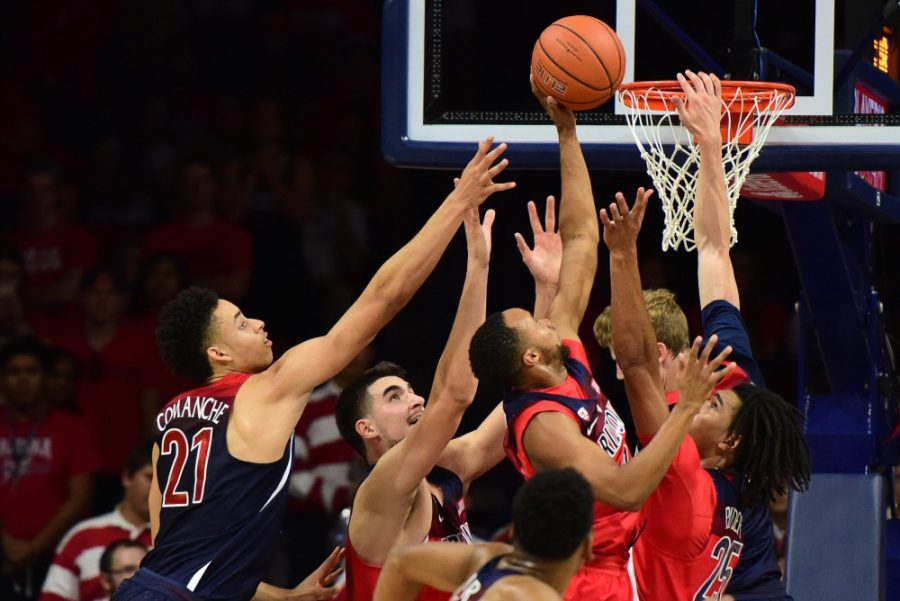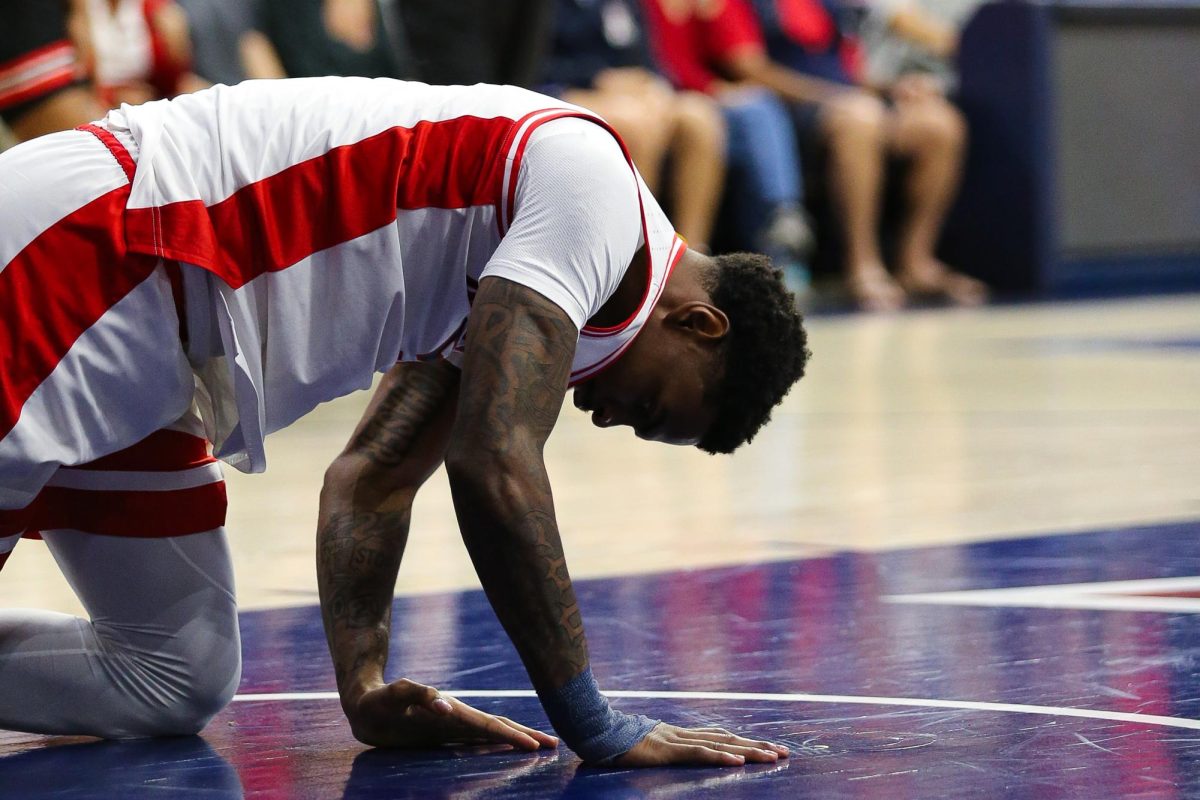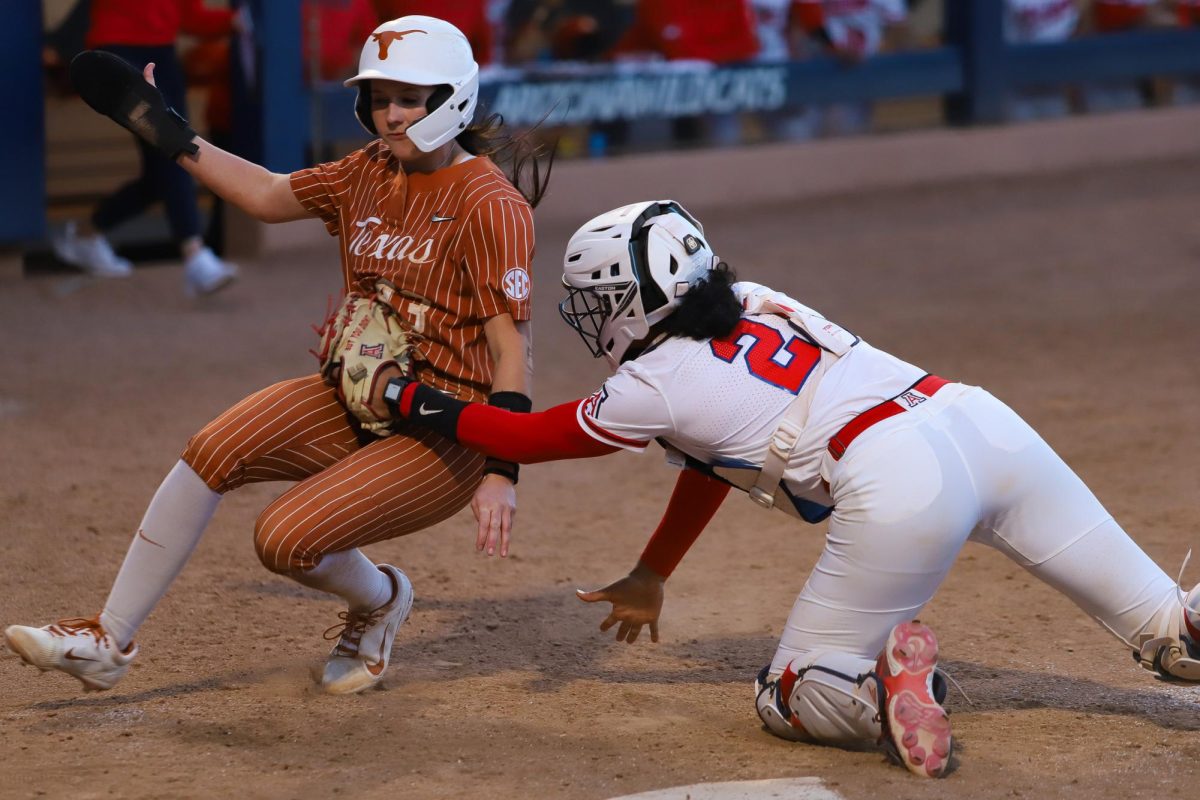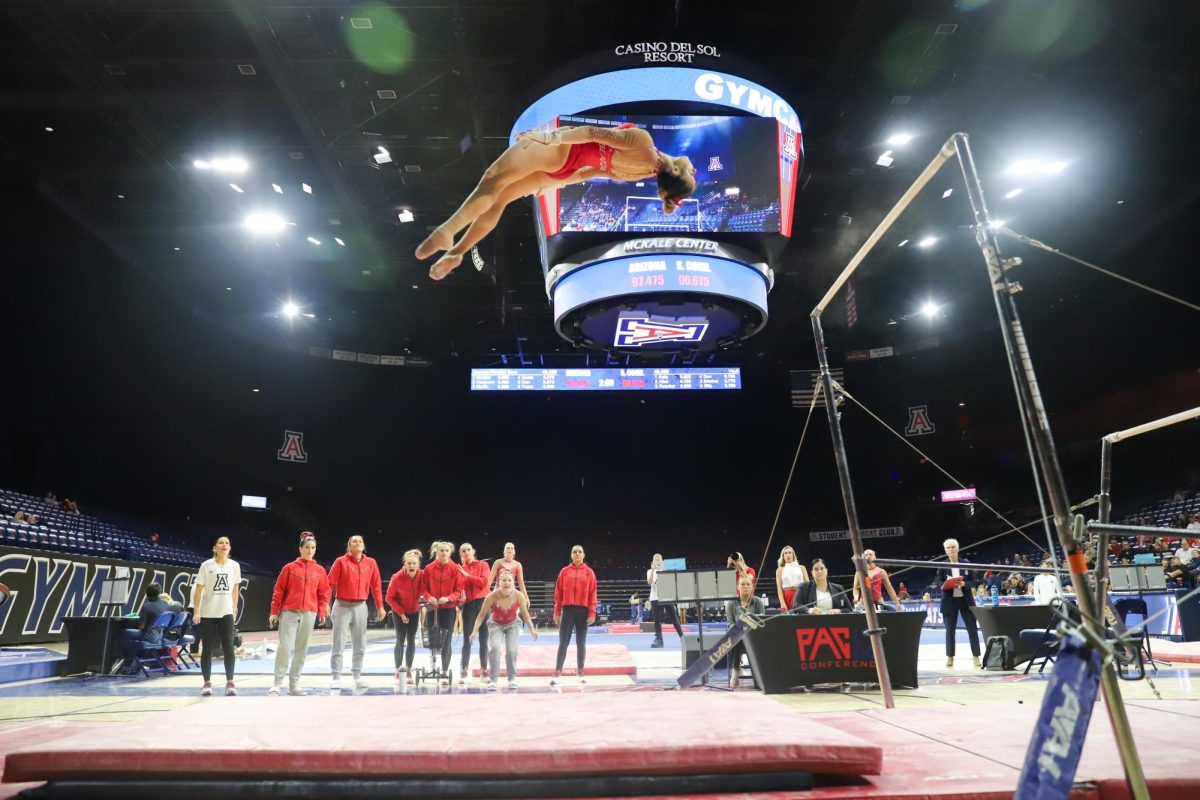UA psychology doctoral students Uri Lifshin and Colin Zestcott conducted a study to determine how an individual’s awareness of their own mortality might affect athletic performance.
The study is based on terror management theory, the concept that human beings develop self-esteem to buffer against anxiety caused by an awareness of death.
“Self-esteem is how much you feel you are of meaning and value, that you are living up to the standards of your culture and that you may continue to exist even after death,” Lifshin said. “People will remember you and your achievements.”
Several studies have determined that human beings seek self-esteem, but terror management theory takes it a step further, connecting the need for self-esteem to a desire to feel meaningful.
Lifshin and Zestcott wanted to see if this theory could be used to enhance people’s performance, and sports seemed like a perfect choice.
“Sports is such a classic domain to achieve immortality in some way,” Zestcott said, citing Muhammad Ali as an example. “No one had looked at how these existential concerns can serve as a key motivator of athletic performance.”
The researchers conducted two separate studies to test their theory, the first of which took two-and-a-half years to complete. After much discussion, it was decided to have participants complete one-on-one basketball games.
Every participant played against the same person, who they believed to be a fellow participant, a practice known as using a confederate. The confederate was Zestcott in disguise.
“This was a key aspect,” Lifshin said. “By keeping it constant, we could control other factors.”
At halftime, participants completed a personality questionnaire with an unusual feature: Half of the questionnaires asked about the participants’ day and what they believed would happen after death, while the other half asked about basketball.
The questions were woven into the personality quiz to prevent participants from becoming suspicious. Performance was determined by how many points a participant scored.
“What we found was that, at the baseline, everyone played equally. But, importantly, after people got the questionnaire, we began to see differences,” Zestcott said.
RELATED: UA opens new center in an effort to better understand the canine mind
Zestcott said those who had thought about death scored significantly better than their first performance and better than participants who hadn’t thought about death.
The second experiment was meant to replicate the initial experiment and extend the findings, but in a timelier fashion. The goal was to prime participants, ask them to perform a shooting task and see if their performance was altered.
Zestcott said he actually got the idea from a UA basketball halftime game.
Participants would have to shoot as many baskets as they could in one minute; all of them would be primed with a reminder of death before the experiment, but only half were exposed again, just before their performance.
Lifshin wore a shirt with a skull on it, which he covered with a sweatshirt for the participants who wouldn’t be prompted and exposing it to participants who would be primed.
Zestcott recorded the data and had no idea which participants had seen the shirt, which Lifshin noted was “very important.” This left Zestcott blind and prevented him from unintentionally affecting the outcome of the experiment through his own actions with the participants.
RELATED: UA researcher awarded $10.3 million to study Alzheimer’s in women
This experiment was completed in one semester and the results were interesting. Participants who were exposed to the “death T-shirt” scored more points than the participants who hadn’t seen the shirt.
“We were surprised by the magnitude of the effect,” Zestcott said. “The difference in points was a decent increase.”
The results of the basketball experiments have added support for terror management theory.
Lifshin and Zestcott believe that this effect may be applicable to anything from the business world to the field of arts to the medical community.
The experiment was done with male undergraduate students, but the researchers believe that it would have a similar effect on females.
There is a condition if an individual would hope to use this theory to drive personal improvement in their own activities: he or she would need to care about their performance in the task and find it important.
“The important thing is that it must be in a context that is meaningful to you,” Lifshin said.
Follow Nicole Morin on Twitter.





















